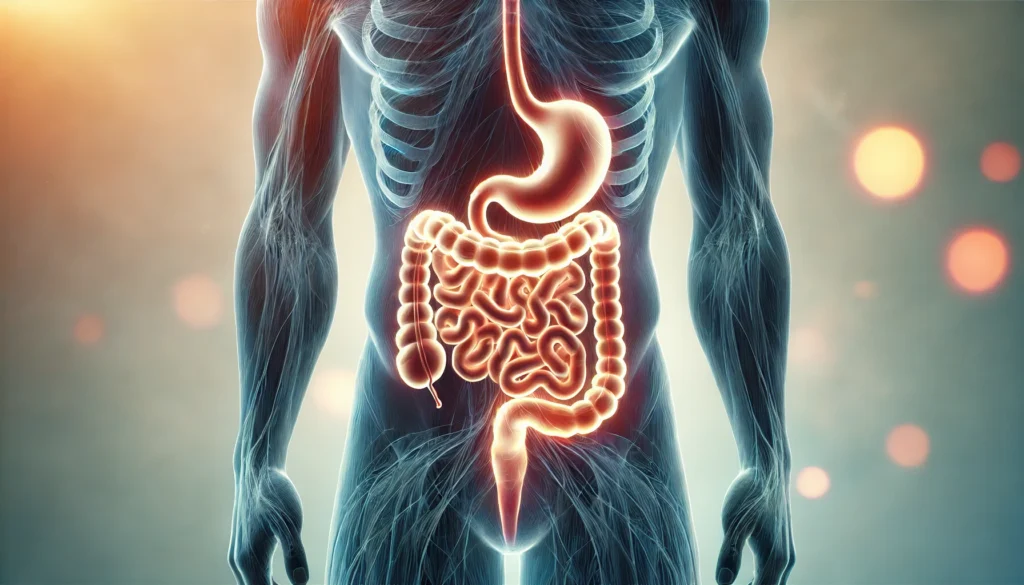Irritable bowel syndrome (IBS) is a chronic gastrointestinal disorder that affects millions of individuals worldwide. Characterized by a combination of abdominal pain, bloating, and altered bowel habits, IBS can significantly impact daily life and overall well-being. Despite its prevalence, IBS remains a complex condition with no single cure. However, a variety of prescription medications are available to help manage symptoms effectively. Understanding the different IBS drugs and how they work is crucial for finding the right treatment approach tailored to an individual’s needs.
You may also like: How to Improve Gut Health Naturally: Science-Backed Tips for a Stronger Microbiome
Understanding IBS and Its Subtypes
IBS is generally categorized into three main subtypes based on the predominant bowel habit: IBS with constipation (IBS-C), IBS with diarrhea (IBS-D), and mixed IBS (IBS-M), which involves alternating bouts of constipation and diarrhea. Each subtype presents unique challenges and requires specific treatment approaches. Identifying the correct IBS subtype is the first step in determining the most effective medication.
For individuals struggling with IBS-C, finding a medication for IBS constipation that provides relief without causing significant side effects is essential. Those experiencing IBS-D need meds for IBS with diarrhea that can regulate bowel movements while minimizing discomfort. Because the symptoms of IBS are often unpredictable, many patients benefit from a combination of treatments tailored to their specific needs.
Medications for IBS with Constipation (IBS-C)
Treating IBS-C requires medications that promote bowel movements and alleviate discomfort without causing excessive urgency. A variety of options are available, including prescription for irritable bowel syndrome that specifically target constipation.
Lubiprostone (Amitiza) is one of the commonly prescribed medications for IBS-C. It works by increasing fluid secretion in the intestines, making stool passage easier. This medication is particularly useful for individuals who experience hard, dry stools and infrequent bowel movements. Many patients report significant improvement in their symptoms after starting lubiprostone, though some may experience mild nausea or bloating initially.
Linaclotide (Linzess) is another widely used IBS prescription for constipation. It functions as a guanylate cyclase-C agonist, stimulating intestinal fluid secretion and accelerating stool passage. Clinical studies have shown that linaclotide not only improves bowel regularity but also reduces abdominal pain associated with IBS-C. However, patients should be aware that diarrhea can be a common side effect, particularly in the early stages of treatment.
Plecanatide (Trulance) is a newer medication that works similarly to linaclotide but may have a milder side effect profile. Patients who experience intolerable diarrhea with other IBS-C treatments may find plecanatide to be a better alternative. Additionally, this medication is designed to mimic the body’s natural intestinal functions, making it a more physiological approach to treating IBS constipation.
Another medication for IBS constipation that is often considered is tenapanor (Ibsrela). This drug inhibits sodium absorption in the intestines, increasing water content in the stool. Unlike some other medications, tenapanor has been shown to cause fewer instances of severe diarrhea, making it an attractive option for long-term management.
Medications for IBS with Diarrhea (IBS-D)
For individuals with IBS-D, managing frequent loose stools, cramping, and urgency is a top priority. Various prescription medications are available to help reduce these symptoms and improve quality of life.
Eluxadoline (Viberzi) is a mu-opioid receptor agonist that slows intestinal movement while reducing pain and urgency. This medication is particularly effective for patients who experience severe diarrhea episodes and need a medication that provides consistent relief. However, individuals with a history of gallbladder disease or pancreatitis should discuss alternative treatments with their healthcare provider, as eluxadoline may increase the risk of complications.
Another effective IBS D medication is rifaximin (Xifaxan), an antibiotic that helps modulate gut bacteria. Unlike traditional antibiotics, rifaximin is not absorbed into the bloodstream, making it safer for long-term use. Studies have shown that rifaximin significantly reduces bloating and diarrhea in patients with IBS-D, though some individuals may require repeat courses to maintain symptom relief.
Alosetron (Lotronex) is a serotonin receptor antagonist that helps regulate bowel movements and decrease abdominal pain. This medication is primarily prescribed to women with severe IBS-D who have not responded to other treatments. Due to potential side effects, including ischemic colitis, alosetron is typically reserved for cases where the benefits outweigh the risks.
For individuals seeking a more natural approach to IBS-D management, loperamide (Imodium) is an over-the-counter option that can help slow bowel movements and reduce urgency. While not a prescription medication, loperamide is often recommended as part of a comprehensive IBS treatment plan.

Managing Unpredictable Symptoms and Additional Treatment Options
In addition to prescription medications, individuals with IBS may benefit from complementary therapies and lifestyle modifications. Many patients find that dietary changes, such as following a low-FODMAP diet, can help reduce symptom severity. Additionally, probiotics, fiber supplements, and stress management techniques can play a crucial role in maintaining gut health.
For individuals experiencing symptoms that do not fit neatly into the IBS-C or IBS-D categories, medications that target multiple symptoms may be necessary. In some cases, tricyclic antidepressants (TCAs) or selective serotonin reuptake inhibitors (SSRIs) are prescribed to help regulate gut motility and reduce visceral hypersensitivity. These medications are particularly useful for individuals whose symptoms are exacerbated by stress and anxiety.
Another emerging area of interest is the use of gut-directed therapies, such as hypnotherapy and cognitive behavioral therapy (CBT). These approaches have been shown to be effective in reducing IBS symptoms and improving overall quality of life. Patients who experience significant stress-related flare-ups may benefit from incorporating psychological therapies into their treatment regimen.

Frequently Asked Questions (FAQ) on IBS Medications
1. What are the main types of IBS drugs available for treatment?
There are several types of IBS drugs available, each targeting different symptoms of irritable bowel syndrome. For those experiencing IBS with constipation (IBS-C), options include medications like linaclotide, lubiprostone, and plecanatide, which work by increasing intestinal fluid secretion and improving bowel movement frequency. In contrast, individuals with IBS with diarrhea (IBS-D) often benefit from medications like eluxadoline, rifaximin, and alosetron, which help slow bowel movement and regulate gut bacteria. Some patients may also be prescribed antidepressants, such as tricyclic antidepressants (TCAs) or selective serotonin reuptake inhibitors (SSRIs), to manage visceral hypersensitivity and gut-brain communication. Finding the right IBS prescription requires collaboration with a healthcare provider to ensure symptom relief and minimal side effects.
2. How does IBS medication for irritable bowel syndrome with constipation differ from over-the-counter laxatives?
IBS drugs for constipation are specifically designed to address the underlying mechanisms of the disorder rather than simply stimulating bowel movements. Unlike over-the-counter laxatives, which often work by irritating the intestinal lining or pulling water into the colon, prescription medications like linaclotide and plecanatide work by activating receptors in the gut that regulate fluid secretion and motility. These medications help restore a more natural rhythm to the digestive system, reducing pain and bloating in addition to relieving constipation. Overuse of traditional laxatives can lead to dependency and worsen symptoms over time, making targeted IBS C treatment a more sustainable option. Consulting a physician before starting any medication for IBS constipation ensures safe and effective management.
3. Are there any natural alternatives to IBS prescription medications?
Yes, while IBS drugs can be effective, some individuals prefer natural remedies to manage their symptoms. Probiotics, for example, help balance gut microbiota and may alleviate bloating and irregular bowel movements. Soluble fiber supplements, such as psyllium husk, can provide IBS constipation help by promoting stool regularity without the harsh effects of stimulant laxatives. Peppermint oil has been found to relax intestinal muscles, potentially reducing cramping and urgency associated with IBS D medication needs. Mind-body therapies, including hypnotherapy and cognitive behavioral therapy (CBT), have also shown promise in managing IBS symptoms by addressing stress-related triggers. However, these approaches may not be sufficient for all patients, and some may still require medication for irritable bowel syndrome with constipation or diarrhea.
4. What should I consider when choosing a medication for IBS D?
When selecting a medication for IBS D, patients should consider factors such as symptom severity, medical history, and potential side effects. Eluxadoline is a common prescription for irritable bowel syndrome with diarrhea, as it reduces bowel urgency by targeting opioid receptors in the gut. However, it is not recommended for individuals with gallbladder issues or a history of pancreatitis. Rifaximin, an antibiotic designed to treat bacterial overgrowth, can be beneficial for those experiencing bloating and irregular stool consistency. Additionally, alosetron is reserved for severe cases of IBS-D but carries risks such as ischemic colitis. Patients should discuss these options with their healthcare provider to determine the most appropriate treatment plan.
5. Can IBS drugs be used in combination with dietary changes?
Yes, most IBS prescription medications work best when combined with dietary modifications. A low-FODMAP diet, which eliminates fermentable short-chain carbohydrates that can trigger symptoms, is often recommended alongside IBS drugs. Individuals with IBS-C may benefit from increasing soluble fiber intake, while those requiring meds for IBS with diarrhea should avoid high-fat and high-sugar foods that can exacerbate symptoms. Hydration is crucial for both IBS subtypes, as proper fluid intake supports healthy digestion. Working with a dietitian can help tailor dietary adjustments to individual needs, optimizing the effectiveness of both medication and lifestyle changes.
6. How does stress impact the effectiveness of IBS medication?
Stress plays a significant role in IBS symptom severity and can influence the effectiveness of IBS drugs. The gut-brain axis, a communication network between the gastrointestinal system and central nervous system, is highly sensitive to emotional stressors. Even with effective IBS C treatment or IBS D medication, heightened stress levels can exacerbate symptoms and reduce a patient’s response to therapy. Techniques such as mindfulness meditation, yoga, and guided relaxation can complement medication by reducing gut hypersensitivity. Some physicians may prescribe antidepressants, not for depression but to modulate gut function and improve the body’s stress response. Patients should consider incorporating stress management strategies alongside their medication regimen for optimal symptom control.
7. Are there any emerging treatments for IBS that go beyond traditional medications?
Yes, research continues to advance in the field of IBS treatment, leading to the development of new therapeutic options. One promising area is the use of gut microbiome modulation, including fecal microbiota transplantation (FMT) for patients with severe dysbiosis. Additionally, researchers are exploring the potential of bile acid modulators to help patients who do not respond to conventional IBS D medication. There is also ongoing interest in neuro-gastroenterology, studying how neurotransmitter-targeting drugs can help regulate gut motility. Future treatments may include personalized medicine approaches, using genetic and microbiome profiling to tailor IBS drugs more precisely to individual patients. Staying informed about these developments can help patients and healthcare providers make better long-term treatment decisions.
8. Can IBS drugs cause long-term side effects?
While IBS drugs are generally well-tolerated, long-term use may be associated with certain risks. For example, prolonged use of linaclotide or plecanatide may lead to persistent diarrhea in some individuals, requiring dose adjustments. Similarly, patients taking eluxadoline should be monitored for pancreatitis, particularly if they have a history of gallbladder removal. Antibiotics like rifaximin, while effective, may contribute to alterations in gut microbiota if used repeatedly. In some cases, reliance on IBS prescription medications without addressing underlying triggers may lead to symptom rebound upon discontinuation. Patients should have regular follow-ups with their healthcare providers to assess the need for continued medication and explore alternative management strategies if necessary.
9. How do IBS medications interact with other prescription drugs?
Certain IBS medications may interact with other prescription drugs, potentially altering their effectiveness or causing adverse effects. For example, eluxadoline, a common IBS D medication, can interact with opioids, increasing the risk of constipation or central nervous system depression. Alosetron should not be combined with medications that reduce blood flow to the intestines, as this increases the risk of ischemic colitis. Some IBS constipation help medications, like lubiprostone, may interfere with the absorption of other oral medications due to increased intestinal motility. Patients taking multiple medications should consult their healthcare provider to avoid drug interactions and ensure a safe and effective treatment plan.
10. Is it safe to switch between different IBS drugs if one is not working?
Switching between IBS drugs is sometimes necessary when a patient does not respond well to an initial treatment. However, transitioning should always be done under medical supervision to prevent adverse reactions or symptom flare-ups. For instance, patients moving from linaclotide to lubiprostone for IBS C treatment may experience a temporary adjustment period as their gut adapts. Similarly, switching from one IBS D medication to another, such as rifaximin to eluxadoline, may require a gradual transition to avoid sudden changes in bowel habits. Healthcare providers will consider factors such as tolerance, effectiveness, and potential contraindications when recommending a switch in medications. Regular follow-ups are essential to track progress and fine-tune treatment for the best results.

Conclusion: Finding the Right IBS Medication for You
The journey to finding the best IBS medication is highly individualized and requires careful consideration of symptoms, lifestyle factors, and medical history. Whether an individual requires a medication for IBS constipation, an IBS D medication, or a broader IBS prescription, working closely with a healthcare provider is essential to achieving optimal symptom management. By exploring different treatment options and making necessary lifestyle adjustments, individuals with IBS can gain greater control over their condition and improve their overall quality of life.
irritable bowel syndrome relief, digestive health treatments, gut health medications, bowel disorder management, chronic constipation solutions, diarrhea control medicine, IBS symptom relief, best treatments for IBS, gastrointestinal disorder therapy, colon health support, bloating and cramping remedies, prescription digestive aids, natural remedies for IBS, gut microbiome balance, functional bowel disorder care, chronic digestive issues, dietary strategies for IBS, intestinal health supplements, probiotics for gut health, stress-related digestive problems
Further Reading:
Medication for Irritable Bowel Syndrome
Medicines That Can Ease IBS-D Symptoms
Treatment for Irritable Bowel Syndrome – NIDDK
Disclaimer
The information contained in this article is provided for general informational purposes only and is not intended to serve as medical, legal, or professional advice. While Health11News strives to present accurate, up-to-date, and reliable content, no warranty or guarantee, expressed or implied, is made regarding the completeness, accuracy, or adequacy of the information provided. Readers are strongly advised to seek the guidance of a qualified healthcare provider or other relevant professionals before acting on any information contained in this article. Health11News, its authors, editors, and contributors expressly disclaim any liability for any damages, losses, or consequences arising directly or indirectly from the use, interpretation, or reliance on any information presented herein. The views and opinions expressed in this article are those of the author(s) and do not necessarily reflect the official policies or positions of Health11News.


